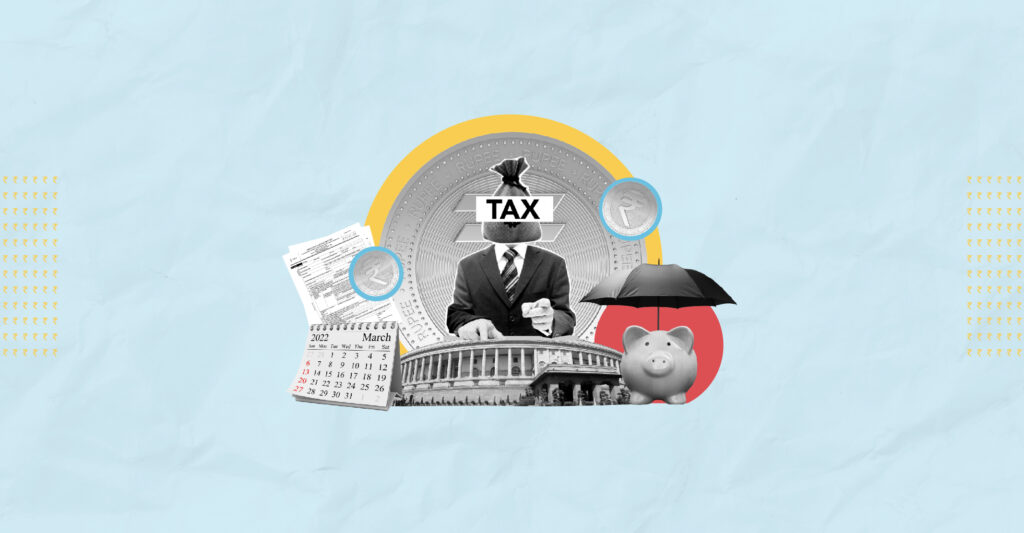Last Updated on Feb 24, 2022 by
If you keep an eye on the Budget announced by the Government every year, you must have noticed certain amendments that it makes. These changes ensure that the laws are up to date and cater to the economic and legal environment of the country.
One such amendment was the ‘Retrospective Tax’ announced by the Government in 2012. Let us understand how it works.
This article covers:
- What is retrospective tax?
- Why is retrospective tax levied?
- Major decisions related to retrospective tax in India
- The Taxation Laws (Amendment) Bill, 2021
Table of Contents
What is retrospective tax?
Retrospective tax is the charge imposed on transactions that have taken place in the past. It creates an additional liability on the taxpayers with effect from a defined previous year. The amendment can either result in an increase in old charges or create a new charge altogether.
Why is retrospective tax levied?
There are many reasons for the introduction of the retrospective tax. In most cases, the Government intends to correct any inconsistency in the law. Over the years, there may have been judicial decisions that lead to any unwanted results. The retrospective tax aims to rectify any discrepancies that may have arisen in the past.
There may also have been cases where the taxpayers faced difficulties while making the tax payment to the Government. The introduction of such an amendment also helps eliminate obstacles for the assessees.
Sometimes a situation emerges where firms take unfair advantage of a loophole they found while paying tax. In later years, the Government may impose a retrospective tax, adjusting the loss incurred due to such acts of the taxpayer. However, this may affect taxpayers who unknowingly applied the rules differently.
More often than not, the change is unwelcome by the public. Organizations that have planned their policies and budgets according to the prevailing tax norms face difficulties or losses. Such decisions are challenged in front of the judiciary, presenting the need to reevaluate the changes.
Major decisions related to retrospective tax in India
In 2012, the then Finance Minister Pranab Mukherjee and the UPA Government announced amendments in Section 9 of the Income Tax Act, 1961, during the Budget session. It introduced the Finance Act, 2012, and the change came to be known as the ‘Retrospective Tax Law.’
It made mergers and acquisitions between foreign companies that had a majority of assets in India taxable. The companies were liable to pay long-term capital gain (LTCG) tax on any transfer of assets. This was initiated with retrospective effect from 1962.
The law was changed later as the Supreme Court ruled in favor of Vodafone. The decision went against the Government of India. Let us understand what went down.
Vodafone
In May 2007, Vodafone acquired a 67% stake in a Hong Kong-based company called Hutchison Essar. The transaction took place outside India, but the Government took an interest in the deal.
Hutchison Essar – a joint venture between Essar and Hutch – was a big player in the Indian telecom market. It operated in India via CDP Limited, which Hutch fully owned. However, the service provider wanted to make an exit. In a deal that took place in the Cayman Islands, Vodafone acquired Hutch’s stake, which was CDP Limited, at a whopping $ 11.1 bn. This resulted in Vodafone Essar’s entry into the telecom sector in the Indian market.
Because of a transfer of Indian-based assets, the Government demanded payment of LTCG tax on the transaction. However, Vodafone approached the Bombay High Court, demanding justice. After all, Vodafone was a Dutch company that acquired a company based in the Cayman Islands. However, the decision went against them. Dissatisfied with the result, Vodafone approached the Supreme Court, where the ruling was made in their favor, stating that it was not a case of deliberate avoidance of tax.
A few months following the decision, the Indian Government announced amendments in Section 9 of the Income Tax Act. The retrospective tax was introduced, forcing Vodafone to pay up. The company has since filed many appeals with international tribunals and has won the case.
Cairn Energy
In 2006, Cairn UK decided to adjust the way its subsidiaries operated. It moved all its holdings in India under Cairn India, ahead of an IPO. The Government took note of the action and argued that Cairn managed to earn many long-term gains in this process.
Furthermore, Cairn India sold a part of its holdings to the Vedanta Group during 2011. The Government imposed retrospective tax on the transactions, demanding payment. Cairn filed an appeal in International Courts. As a result, the French Court froze certain Indian assets in Paris.
Apart from these two cases, the introduction of the retrospective tax affected 17 other companies. It had a negative impact on India’s reputation, as stated by various businessmen and economists. India was rendered a not-so-attractive market for foreign investment.
To counter the ill effects of the amendment, the NDA government introduced new measures in 2021. These have led to the formation of the Taxation Laws (Amendment) Bill, 2021. Let us see the changes it has brought forward.
The Taxation Laws (Amendment) Bill, 2021
The bill was announced on 5 August 2021. It nullified the provisions for retrospective tax as previously declared by the Government. The sale or transfer of assets by foreign organizations in India before May 2012 will be free from retrospective tax.
However, the organizations must take back any legal appeal against the Government. Moreover, they must also forego all interest and damages incurred during the process. In return, the Government has agreed to refund the partial amounts it has collected as tax from them over the years.
Conclusion
Retrospective tax can be considered an extension of red-tapism and the socialistic mindset of the economy and Governments since time immemorial. However, there is hope that the new amendment will positively impact foreign investors. They shall find lucrative investment opportunities in India. Moreover, it will bring more certainty to the taxation practices in the country.




